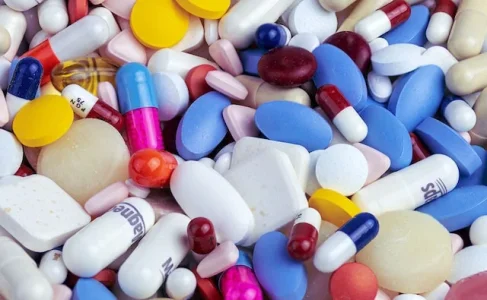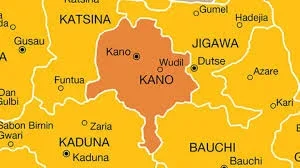
In the wake of GlaxoSmithKline's (GSK) exit from Nigeria in August 2023, the nation has witnessed an alarming surge in the cost of drugs and pharmaceuticals. This unprecedented increase has far-reaching implications, widening the social gap and restricting access to healthcare for many Nigerians. This article delves into the causes and consequences of this healthcare crisis, examining the impact on individuals, the healthcare system, and proposing strategic solutions for the future.
The Exit of GlaxoSmithKline (GSK):GSK, a prominent British pharmaceutical company with a 51-year presence in Nigeria, announced its decision to cease operations in the country on August 3, 2023. Despite its half-year revenues decreasing, the company's exit was not attributed to past business failures but rather to present pressures and foreseen challenges in the Nigerian market. GSK's departure was expected to have a ripple effect on various facets of the Nigerian healthcare sector.
Anticipated Impact and Present-Day Realities: Experts foresaw several repercussions following GSK's exit, including reduced access to safe medications, inflated drug prices, an influx of fake drugs, and a potential deterrent for other investors in the pharmaceutical industry. Presently, reports indicate significant hikes in drug prices, exacerbating the challenges in Nigeria's access to affordable medications. This situation is compounded by hoarding, price gouging, and a rising preference for unregulated herbal drugs among the populace.
Insight from Drug Distributors: A glimpse into the pharmaceutical landscape comes from Samuel Okuwada, CEO of Remedial Health, a drug distribution company in Lagos. According to Okuwada, the average price of imported drugs has surged by 200%, while domestically manufactured drugs have seen a 40% increase in the past six months. Critical medications like Augmentin and Ventolin inhalers are either unavailable or exorbitantly priced, pushing many essential drugs beyond the reach of ordinary Nigerians.
Understanding the Root Causes: Pharm. Akinjide Adeosun, Chairman of St Racheal Pharma and former African Director at GSK, sheds light on the underlying issues contributing to the price surge. He likens the situation to a 'Pharmaceutical Disease' affecting the entire sector. Adeosun emphasizes the overreliance on imports, monetary challenges linked to exchange rate fluctuations, and fiscal challenges arising from taxes and levies. He further identifies the energy cost and over-taxation as significant contributors to the spike in drug prices.
Monetary Challenges: Adeosun outlines the susceptibility of the pharmaceutical industry to changes in exchange rates, highlighting the current parallel market rate of ₦1165 compared to the pre-existing ₦461. He stresses the need for urgent government intervention to address the root causes and prevent a looming disaster in the pharmaceutical sector.
Fiscal Challenges: The fiscal challenges facing the industry, including corporate income tax, levies, and import duties, are explored. Adeosun underscores the need for a strategic approach to streamline charges and regulations, fostering a conducive environment for the growth and sustainability of the pharmaceutical sector in Nigeria.
Over-Taxation and Energy Cost: Customs-imposed taxes, levies, and import duties, coupled with power supply challenges, contribute to the industry's competitiveness. Adeosun advocates for a strategic approach to streamline charges and regulations to create an environment conducive to growth.
Proposed Solutions: To address the current crisis and chart a way forward, Adeosun proposes the establishment of a Nigerian 'Bank of Health.' This dedicated institution would separate health financing from other sectors, recognizing the unique financial challenges faced by the healthcare industry. Additionally, Adeosun calls for a declaration of a state of emergency in the pharmaceutical sector and emphasizes the need for 'medicine security' in Nigeria by 2033.
Short-Term, Medium-Term, and Long-Term Strategies: Adeosun advocates for a short-term strategy involving a massive importation of drugs to address immediate gaps, stimulate employment, and inject liquidity into the pharmaceutical sector. He recommends a 50/50 distribution goal for local manufacturing and imports in the medium term, gradually shifting to 80% local production and 20% imports in the long term. Adeosun underscores the importance of a national strategic plan, setting objectives, addressing roadblocks, and leveraging enablers for sustained growth in the pharmaceutical sector.
Conclusion: The healthcare crisis in Nigeria, exacerbated by the exit of GSK, demands urgent attention and strategic intervention. The proposed solutions, including the establishment of a 'Bank of Health' and a comprehensive 10-year plan, provide a roadmap for revitalizing the pharmaceutical sector, ensuring medicine security, and fostering economic growth. The declaration of a state of emergency underscores the severity of the situation, necessitating collaborative efforts from the government, industry players, and patients to secure the future of healthcare in Nigeria
Source: This Day Live




